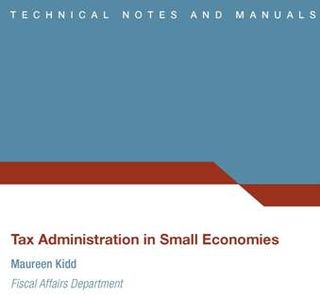Posted by Maureen Kidd

How should small and micro economies organize their tax administration? Are general principles of organization difficult to apply in these situations? What kinds of organizational solutions have been adopted for tax administrations in these situations?
TNM/10/06 defines small and micro economies in the context of tax administration and discusses a number of general principles of tax administration organization. It goes on to look at the particular characteristics of tax administration in small and micro economies using the examples of Fiji and the Seychelles.
The technical note analyzes the difficulties in applying general principles of organization: for example, how small size impacts a function-based structure, how limited staff size affects capacity and the ability to take on new challenges and how typical taxpayer segments (large, medium, small) can often be too narrow for organizational reference. The note sets out a number of general principles to be adapted to better suit small and micro organizations—these principles deal with function-based structures, integrated and segmented administration. The note also presents a possible organizational
model for small and micro tax administrations.
Note: The posts on the IMF PFM Blog should not be reported as representing the views of the IMF. The views expressed are those of the authors and do not necessarily represent those of the IMF or IMF policy.







